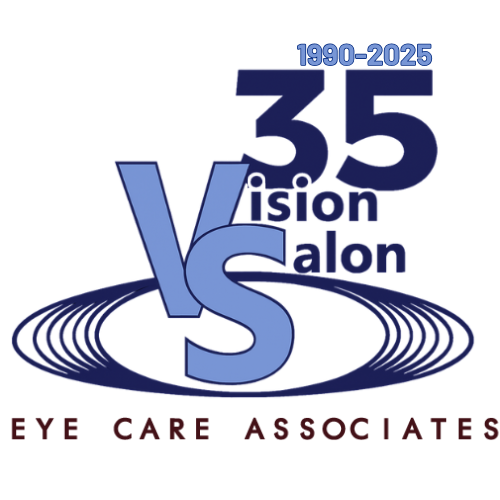Keratoconus is an eye condition where the cornea—the clear, dome-shaped front part of the eye—becomes thinner and gradually bulges outward, forming a cone-like shape. This change in shape can cause blurry or distorted vision and may make your eyes more sensitive to bright lights or glare.
Keratoconus typically develops in both eyes and generally begins to affect people in their late teens through their 30s. The condition often progresses slowly, sometimes over a decade or more.¹
Symptoms of keratoconus
Signs and symptoms of keratoconus may change as the disease progresses. They include:
- Blurred or distorted vision
- Increased sensitivity to bright light and glare
- Problems with night vision
- Many changes in eyeglass prescriptions
- Sudden worsening or clouding of vision, caused by a condition in which the back of your cornea ruptures and fills with fluid (hydrops)
Make an appointment to see our eye doctors if you have an irregular curvature of the eye (astigmatism) and your eyesight is worsening rapidly. Your eye doctor may also look for signs of keratoconus during comprehensive eye exams.
What causes keratoconus?
The exact cause of keratoconus is unknown. Keratoconus may be associated with:
- Vigorous rubbing of your eyes
- Other eye conditions, including retinitis pigmentosa, retinopathy of prematurity, or vernal keratoconjunctivitis
- A combination of several disorders, such as enzyme abnormalities or hereditary factors, including Down syndrome
- Wearing contact lenses for several years
Visual correction with moderate to advanced keratoconus may be best with contact lenses, with surgery being an option for more advanced cases.
Keratoconus treatment
In the early stages of keratoconus, vision can often be corrected with glasses or soft contact lenses. As keratoconus progresses, you may need rigid gas permeable contact lenses or other types of contact lenses. Advanced keratoconus may require a cornea transplant.
Modern contact lenses for keratoconus provide clearer vision and greater comfort than ever before, making it much easier to see well and feel comfortable throughout the day. Our office uses several advanced design lenses, including soft, hybrid, and scleral lenses. Feel free to call our office to make an appointment for an evaluation to see which lens type would be best for you.
Can you get LASIK with keratoconus?
Keratoconus can affect your eligibility for LASIK surgery. LASIK reshapes the cornea, and because keratoconus weakens and thins the cornea, the procedure is generally not recommended for people with this condition.
If you’re considering laser-assisted in-situ keratomileusis (LASIK) eye surgery, make sure your doctor checks for signs of keratoconus before you proceed. We can also evaluate your eyes in our office to see if you are a good candidate for LASIK.
See clearly and comfortably with keratoconus
Keratoconus doesn’t have to mean blurry or uncomfortable vision. At Vision Salon Eye Care Associates, we can help you explore all your options and find the best solution for your eyes. Schedule your appointment with our experienced team and get the personalized care your eyes deserve.
References:





